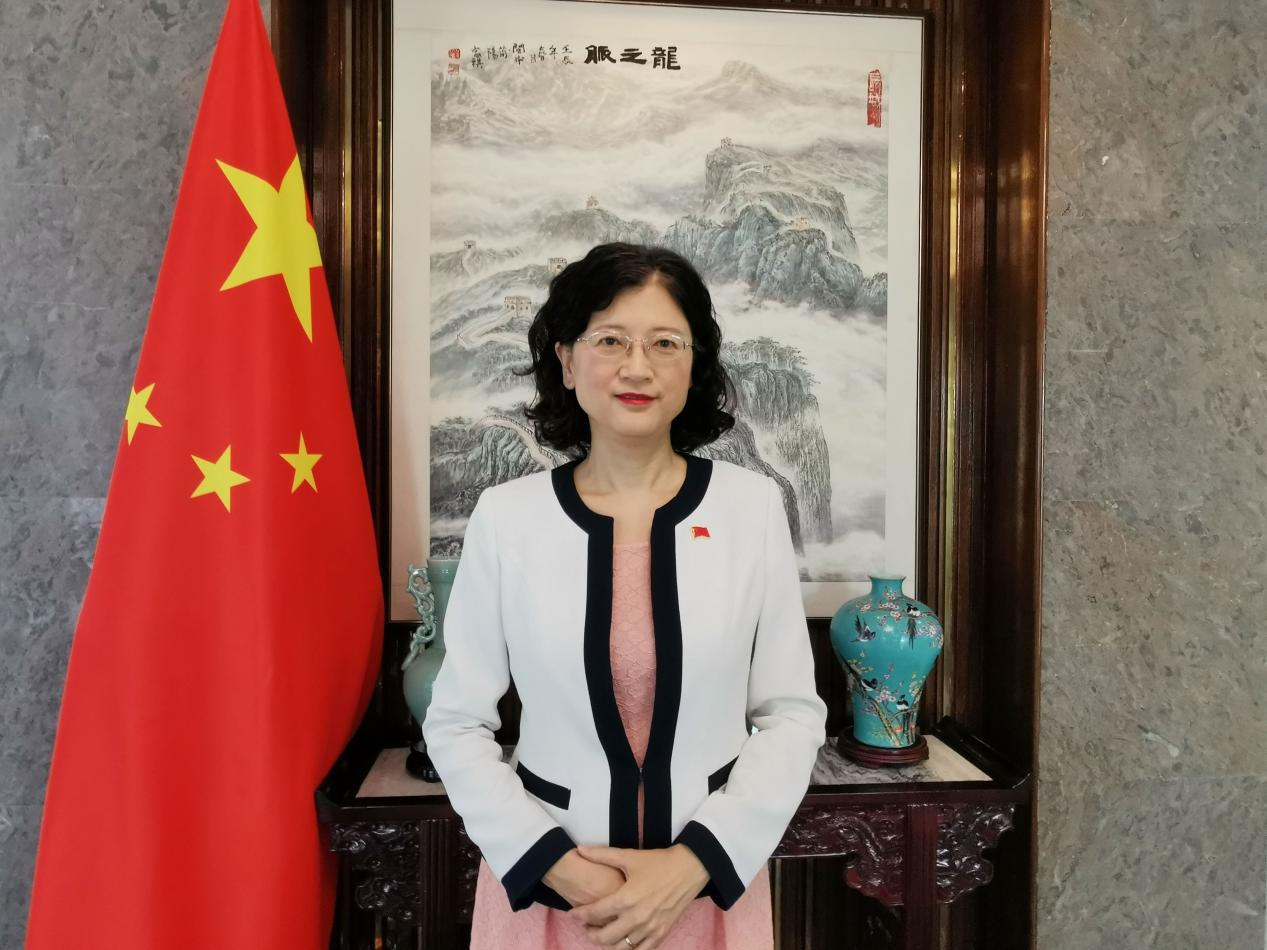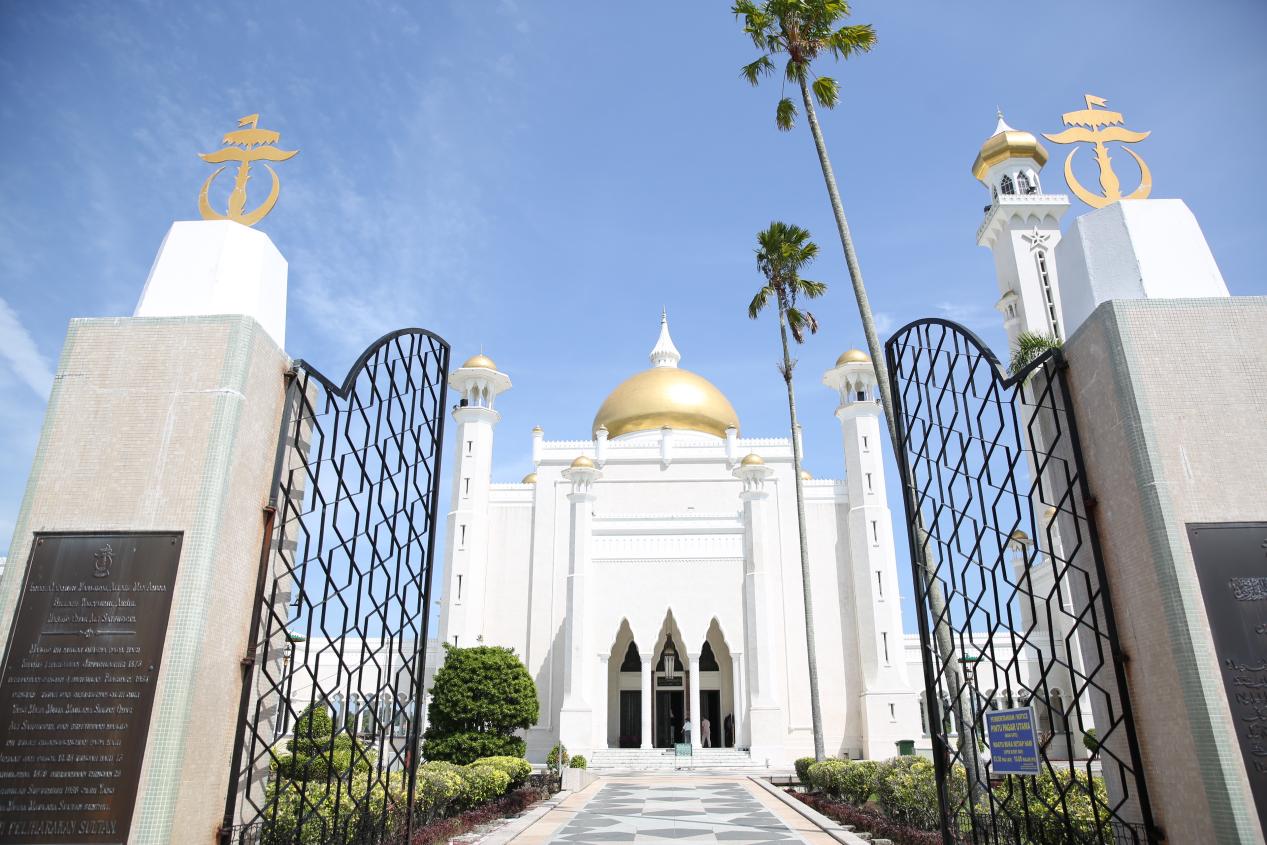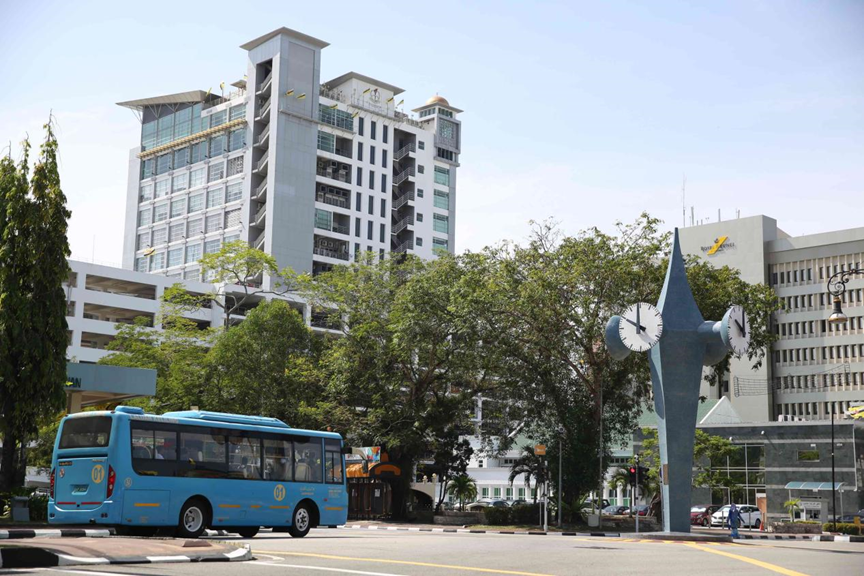

Written by Li Min / Translated by Chen Zhiying
China and Brunei have a long history of exchanges. The Jalan Ong Sum Ping and Pu Kung Chih Mu in Bandar Seri Begawan and the Tomb of the King of Boni in China’s Nanjing city all bear witness to the long history of friendly interactions between the two countries. On September 30, 1991, China and Brunei officially established diplomatic relations, opening a new chapter in the history of friendly exchanges between the two countries. On the 30th anniversary of the establishment of diplomatic relations between China and Brunei, Yu Hong, Chinese Ambassador to Brunei, received an exclusive interview with reporters from China-ASEAN Panorama Magazine. She indicated that over the past three decades since the establishment of diplomatic relations, China and Brunei have deepened mutual trust, developed cooperation and promoted friendship, becoming a exemplar of equal treatment, mutually beneficial and win-win cooperation and common development between countries of different systems and sizes.

Good cooperation relation between China and Brunei in the past
“The past three decades have witnessed the continuous development of China-Brunei relations and the deepening of mutual trust. Leaders of both sides have attached great importance to and promoted the development of bilateral relations,” said Ambassador Yu Hong, “In 2013, the two countries established a ‘strategic cooperative relationship’. During Chinese President Xi Jinping’s state visit to Brunei in 2018, the leaders of the two countries elevated bilateral ties to ’strategic partnership of cooperation’, charting the course for bilateral relations from a strategic height.
According to Ambassador Yu Hong, His Majesty Sultan Haji Hassanal Bolkiah Mu’izzaddin Waddaulah of Brunei, has been to China 12 times for visits and international conferences. It is worth mentioning that the Sultan of Brunei was the first foreign state leader received by President Xi Jinping when he was the governor of Fujian province, and the first foreign state leader that President Xi received when he was elected. On the 100th Anniversary of the founding of the Communist Party of China, the Sultan of Brunei made calls with President Xi Jinping and sent warm congratulations. Ambassador Yu Hong said: “the close exchanges between the leaders of the two countries reflect not only the friendly bilateral relations but also the interesting friendship between the two leaders.”
Under the guidance of high-level leaders, the two governments have established a multi-level all-round dialogue mechanism. The China-Brunei Intergovernmental Joint Steering Committee was launched in January 2020 and has held two meetings so far.
The past three decades have witnessed the docking of development strategies and the sharing of cooperation opportunities between China and Brunei. With a population of only 450 thousand, Brunei’s domestic market is not large, and the economy is mainly dependent on oil and gas industry. But in recent years, by developing the Brunei Vision 2035, the country is vigorously promoting economic diversification. With the docking of the Belt and Road Initiative and the Brunei Vision 2035, China has become an important partner in promoting the diversified development of Brunei’s economy. The economic and trade cooperation between the two countries has thus entered to the fast lane.

“The bilateral trade volume between China and Brunei has increased nearly 200 times from less than US$ 10 million at the beginning of the establishment of diplomatic relations to US$ 1.91 billion in 2020. From January to July 2021, the bilateral trade volume reached US$ 1.58 billion, a year-on-year increase of 41%. China has become one of Brunei’s most important trading partners,” said Ambassador Yu Hong, “The two-way investment has grown from scratch and from small to large. At present, China has become the largest source of foreign capital in Brunei. The investment fields include energy, petrochemical, infrastructure, fishery, etc.”
From key infrastructure projects like the Sultan Haji Omar Ali Saifuddien Bridge, the Ulu Tutong Dam, Telisa-Lumut Highway, to the Hengyi PMB Petrochemical Project invested by Chinese enterprises, the largest foreign direct investment project in Brunei, and the joint efforts of enterprises of the two countries to develop Muara Port in Brunei... Practical cooperation projects between the two countries provide impetus to the modernization of Brunei and the diversified development of local economy.
Among them, the Muara Port Project is a key project under the framework of “Guangxi-Brunei Economic Corridor” launched in 2014. In 2017, Guangxi Beibu Gulf International Port Group and Brunei Darussalam Asset Management Company established a joint venture to officially take over the operation of the container terminal of Brunei Muara Port. “Since Guangxi Beibu Gulf International Port Group took over, the efficiency of Muara Port has been greatly improved, turning losses into profits that year. In December 2020, Muara Port Company won the bid for Muara fishing port project, taking a substantive step towards the port industry park, said Ambassador Yu Hong, “Muara Port has improved its ability in projecting influence and driving regional economic development. At the same time, it has also laid a good foundation for building the ‘Guangxi-Brunei Economic Corridor’ into a double demonstration project for China-ASEAN Eastern Growth Area and the New International Land-Sea Trade Corridor.”
The past 30 years bear witness to increasingly extensive exchanges and closer people-to-people exchanges between the two countries. “The two countries are traditionally friendly, and bilateral cooperation in education, tourism, sports, and culture is in the ascendant,” said Ambassador Yu Hong. According to the Ambassador, 2020 marks the China-Brunei Tourism Year, on which President Xi Jinping sent congratulations to Brunei Sultan. The Chinese Embassy in Brunei also held an event called “China Day” in cooperation with the Brunei government, which opened a new window for people in Brunei to learn about China.
In terms of education, the Chinese government provides scholarships for Brunei students through various channels every year. Chinese funded enterprises in Brunei cooperate with universities of the two countries to cultivate talents in oil and gas downstream industries, electronic information technology and other industries for Brunei. In July 2021, the Chinese Embassy in Brunei also held a friendship activity for Brunei students studying in China for the first time, to enhance communication and exchanges with them.
On the 20th anniversary of the establishment of diplomatic relations between China and Brunei, Brunei Princess Masna was awarded the title of “People’s Friendship Envoy” by the Chinese People’s Association for Friendship with Foreign Countries for making important contributions to promoting Chinese friendship for a long time. From high-level leaders to ordinary people, from past to the present, there are bits and pieces reflecting the developing and friendly relations between the two countries.
Highlighting the “Kampung Spirit” in jointly fighting the epidemic
Most place names in Brunei begin with Kampung. The “Kampung Spirit” is the traditional governance model of Brunei society, reflecting the spirit of sharing weal and woe among neighbors. Ambassador Yu Hong said: “China and Brunei have undergone the test of the COVID-19 since 2020. The two countries have carried forward the “Kampung Spirit”and jointly fought against the pandemic. Brunei Sultan made calls with President Xi Jinping, showing support for anti-pandemic measures taken by the Chinese government and donated US$ 500 thousand to Hubei, China. Princess Masna wrote encouraging words on the message board to encourage Chinese people and Wuhan city in the fight against the pandemic when she was present at the event celebrating the Spring Festival.”
According to Ambassador Yu Hong, in February 2021, when the COVID-19 vaccines were extremely scarce around the globe, China overcame its own difficulties and donated 52,000 doses of Sinopharm vaccines to Brunei. Chinese enterprises assisted Brunei government to build a pandemic emergency response platform based on artificial intelligence technology, “Healthy Brunei” system, and the Huo-Yan (Fire Eye) laboratory. All these are warm moments of joint efforts in fighting the pandemic.
“In August 2021, the second wave of pandemic broke out suddenly in Brunei, and the number of new cases increased rapidly. China’s BGI quickly responded to the urgent needs of the Brunei government. In less than a week, it quickly coordinated the delivery of testing equipment to Brunei and deployed more than 60 Chinese experts from different mission sites around the world to gather in Brunei, building the first mobile air film laboratory called Fire Eye in ASEAN countries, It has greatly improved Brunei’s nucleic acid detection capacity and greatly encouraged Brunei people’s confidence in overcoming the pandemic, said Ambassador Yu Hong, “these heroes in harm’s way have explained to the world what a community of human destiny is with their actions.”
Recently, Chinese State Councilor and Foreign Minister Wang Yi also told Bruneian Second Minister of Foreign Affairs Erywan that China will once again provide Brunei with vaccines when it is most needed. The two countries carry forward the “Kampung Spirit” and help each other under the pandemic, which undoubtedly serve as more vivid examples of the friendly relations between the two countries.
Seizing opportunities to develop in the future
Looking back on the past and viewing the present, we can see that the future is promising. In Ambassador Hong’s view, China and Brunei will usher in many great opportunities in the future because of they are strategically fit, like-minded, and mutually beneficial in economy, plus the assistance of the successful signing of the Regional Comprehensive Economic Partnership Agreement (RCEP).
“In the future, both sides could strengthen the docking of China’s ‘Long-Range Objectives Through the Year 2035’ and Brunei’s ‘2035 Vision’ strategy and promote the development of bilateral strategic cooperative partnership,” said Ambassador Yu. She said that in the economic and trade cooperation, the two countries can strengthen and expand existing cooperation and continue to promote cooperation in major projects such as Hengyi Petrochemical and “Guangxi-Brunei Economic Corridor” under the guidance of building the Belt and Road. At the same time, focus on the economic recovery after the pandemic, explore new areas of cooperation in the post-pandemic era, and cultivate new growth points in 5G, digital economy, artificial intelligence and big data application.
With the increasing popularity of economic and trade cooperation between China and Brunei, more and more Chinese enterprises shift their eyes to Brunei investment. At present, there are more than 40 Chinese funded enterprises in Brunei. Ambassador Yu Hong said that Chinese enterprises investing in Brunei have to meet the needs of the country’s diversified economic development and focus on the downstream industries of oil and gas, food, tourism and information technology that Brunei encourages foreign investment. In addition, enterprises should strengthen compliance management, pay attention to green development and actively fulfill social responsibilities.
“Beautiful environment, emphasis on tradition, friendliness and boasting unique charm” are some key words Ambassador Yu Hong used to summarize the overall characteristics of Brunei. In recent years, more and more Chinese tourists choose to travel to Brunei for sightseeing. In 2018, China became the largest source of tourists in Brunei, accounting for 23.6% of tourists in Brunei. Is Brunei worth going to? What’s the charm of this peaceful nation, the largest tourist destination on Kalimantan island?

“Although Brunei is a small country, it still feels sparsely populated relative to its population. Its forest coverage rate is 72%, ranking first in Southeast Asia. There are few high-rise buildings here. Looking ahead, there are green fields, vast lands and high skies. This primitive natural scenery will bring joy to domestic friends who have lived in cities for a long time, said Ambassador Yu Hong, “In people’s daily life, not only monkeys, birds and lizards will appear from time to time, egrets that are extremely picky about the environment can also be seen everywhere, and even crocodiles basking in the sun can be seen by the river. It is pleasant to go to Brunei, whether it is to climb high and look into the distance, see the clouds, or walk on the beach and watch the sunrise and sunset.”
“I hope all of you will come to Brunei to have a look at and learn more about this Southeast Asian country after the pandemic,” said Ambassador Yu Hong.
桂ICP备14000177号 Copyright@2006-2013 Guangxi China-ASEAN Panorama Magazine Agency Co., Ltd. All Rights Reserved